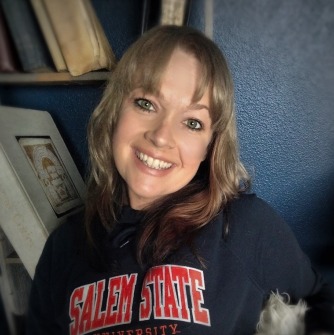| Contact |
Center for Holocaust and Genocide Studies
|
|---|
Travel is fatal to prejudice, bigotry, and narrow-mindedness, and many of our people need it sorely on these accounts. Broad, wholesome, charitable views of men and things cannot be acquired by vegetating in one little corner of the earth all one’s lifetime.
—Mark Twain, The Innocents Abroad, or The New Pilgrims’ Progress (1869)
I began examining the Holocaust while studying my family’s history. The fascinating story of my grandparents’ survival piqued my interest as a young adult, and from there, I began reading everything I could lay my hands on. Through books, I followed the surges of antisemitism from early Christianity to its growth into a grotesque monster by the end of World War I and the 1930s. I read endless accounts of how Nazi philosophy twisted the perceptions of ordinary persons so that what was unimaginable before 1933 became the acceptable norm thereafter. As a student, I investigated how the teaching of the Holocaust can encourage cultural awareness and highlight the extraordinary differences that make our world exciting and magical.
But despite my efforts, something was missing. As an American Holocaust student, I was isolated from the very thing I have focused on. Thus, when the Center for Holocaust and Genocide Studies offered a course to study the Holocaust in Central Europe, I jumped at the opportunity without hesitation.
Before the trip, I saw the Holocaust through black and white pictures. But in Europe, history was on display in vivid colors. For example, I was able to explore the path the prisoners took when arriving at Mauthausen concentration camp. I was also able to see with my own eyes the halls in which Sophie Scholl took a stand against Nazism. But above all, studying in this setting provided me with a more accurate and complete understanding of the Holocaust. While many stories are recounted in history books, the untold stories are buried in the landscape and the objects that remain at the physical sites where the mass murder of the Jews and others took place.
The trip brought to mind Mark Twain’s words quoted above. It also gave them a special resonance. Study and travel, particularly when history is the subject matter, break down the barriers of a traditional classroom so that students not only learn but also experience their studies. In so doing, travel can also help break down prejudices, misconceptions and barriers between people.
I am one of the first remote students in the Graduate Certificate in Holocaust and Genocide Studies program at Salem State. The transition to hybrid classes allowed me to obtain a certification that would otherwise be unavailable at my principal university in Texas. My ultimate intention is to teach the story of the Holocaust, of the children who were murdered, of the families that were uprooted, of the constant fear and of the mass dislocation and confusion. By informing the minds of our future citizens and cultivating a deeper understanding of the Holocaust in them, we not only honor those who were lost but also remind ourselves that such monstrosities must never happen again. Indeed, a change needs to take place. That change can be brought about only through education, personal engagement with different cultures and the firsthand experiences afforded by study and travel.

